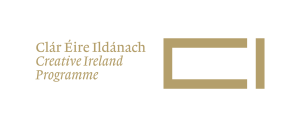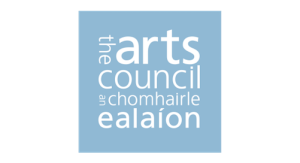About Gleann a’ Phúca
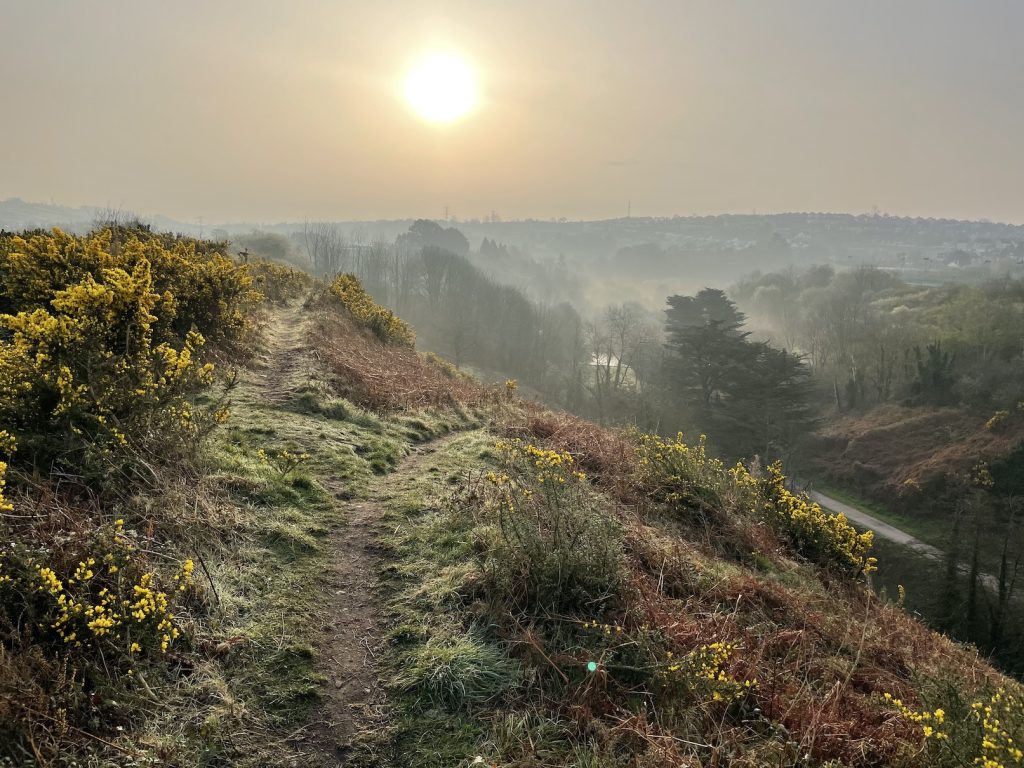

Gleann a’ Phúca began as a project, Narratives with Nature, which was devised by Julie Forrester at the beginning of 2020 during the first lockdown of the Covid Pandemic, when we were restricted to our 5 kilometre area of movement.
Narratives with Nature was funded by a bursary from The Arts Council of Ireland and was initially intended as research for developing creative play with young people in nature.
The research took the form of a visual diary and deepening connection with the place
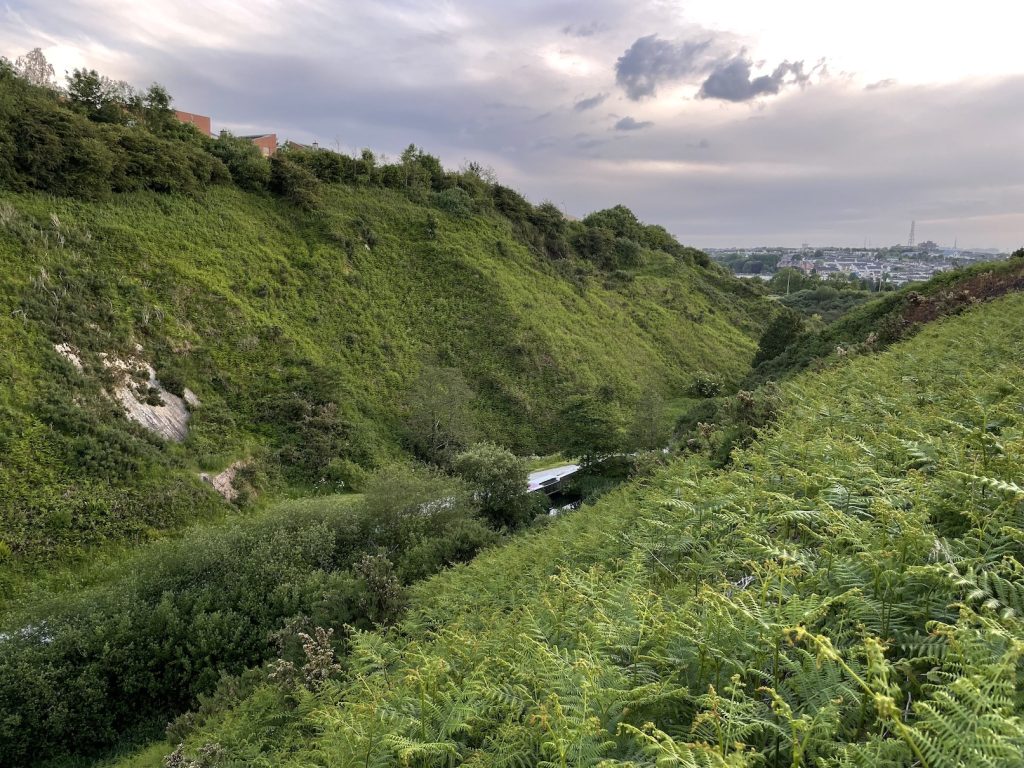
The Glen Park became both refuge and obsession. Its deep valley sides led her into a quiet paradise of birdsong and wild willows, of old ruins reclaimed by nature and gorse bushes popping their pods in that strange summer of sunshine. As the year progressed she got to know the plants by name and became ever more curious about the layers of history in the place both human and wild. She would disappear for hours in all kinds of weather just responding to the call of the valley
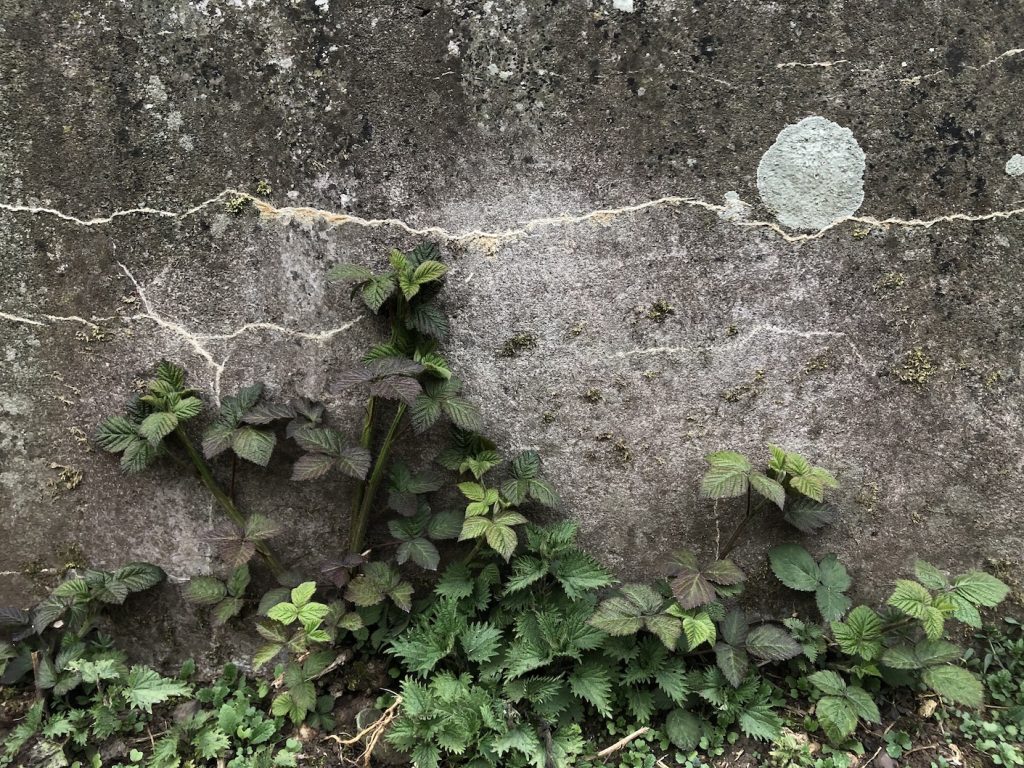
She learned that it had once been a haunted wood, known as Glen of the Spooks, that it became tame enough for humans as the river became a resource for industry. The flowing water was used for power and evacuation of waste
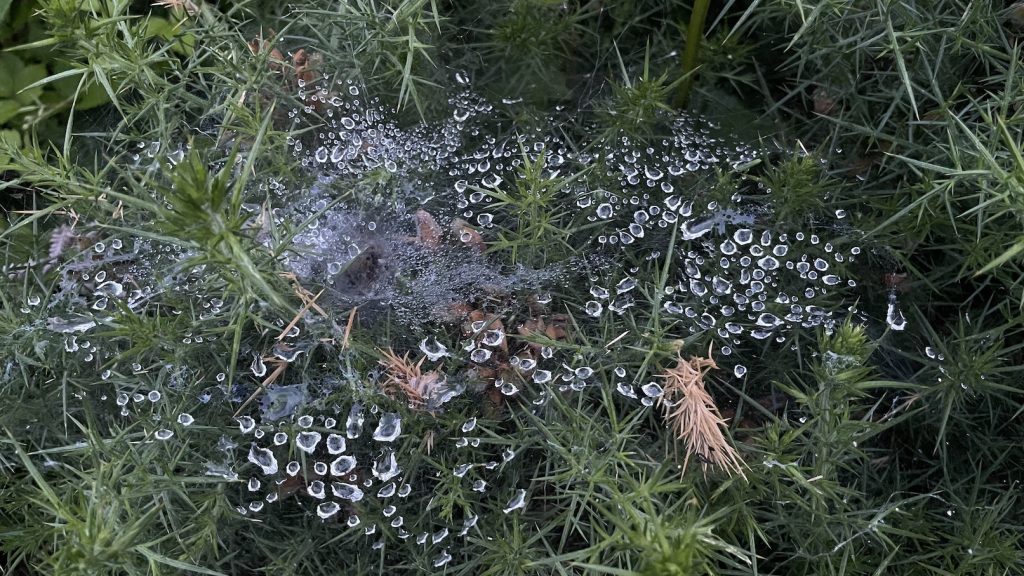
The valley drew her in and enveloped her days
In 2021 she began keeping a blog about the place
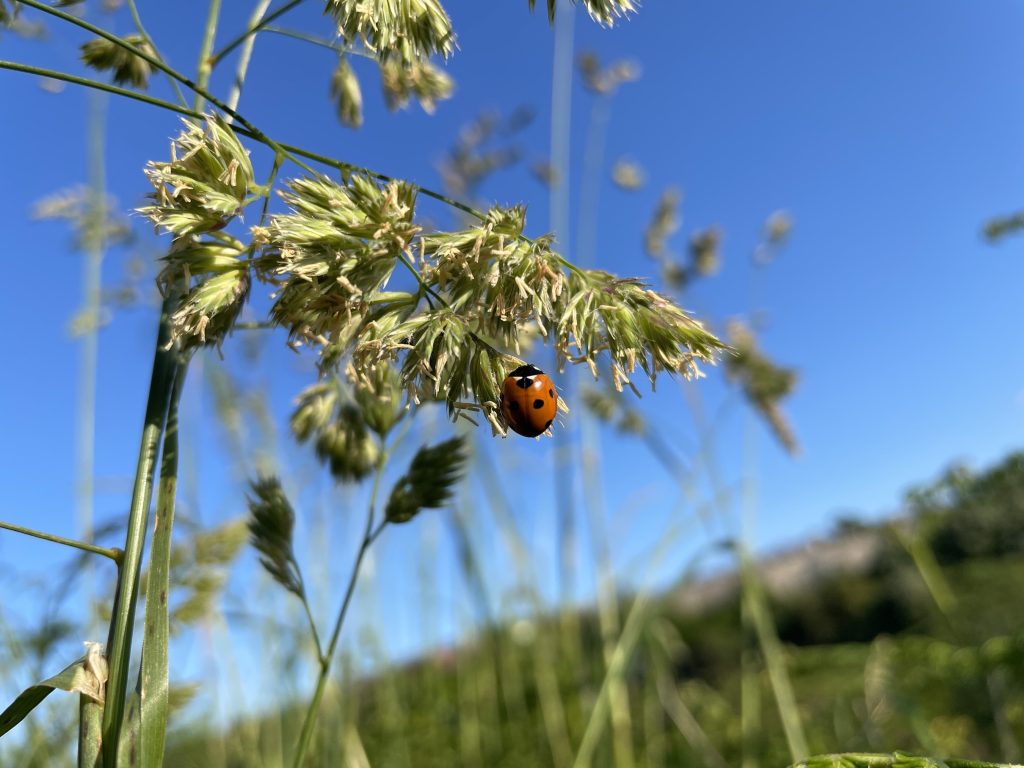
In March 2022, supported by a Cork City Council Project Research Bursary she put out a call to other artists who knew the Glen, and invited a panel of peers to select 6 propositions for the park.
Here is the information webinar
Artists from all disciplines were invited to consider site-specific responses in any art form to the Glen River Park.
“The spirit of the project is for propositions, which will reveal themselves subtly to Glen Park walkers; which will inspire curiosity and wonder without interrupting the natural beauty of the park. Collaborative, performative, participatory responses, as well as those with a material or virtual element, are all welcome. This is a visionary project, and we welcome imaginative propositions”
“The project is aspirational and does not aim to produce actual artworks in the first phase”
6 expressions of interest were selected (from a total of 38 responses) by a panel of professional arts peers including Aobhie McCarty Director of Sample-Studios, Elaine Coakley, Director, Backwater Artists’ Group and, Danny McCarthy, Sarah O’Flaherty, Carol-Anne Connolly (artists) Dobz O’Brien (artist/programme Manager of the National Sculpture Factory) Gerard O’Brien (Historian/writer and Glen Native).
24 June 2022 Gleann a’ Phúca Launch, The Atrium City Hall
In a period of public consultation across the summer of 2022, Gleann a’ Phuca held exhibitions of the 6 artists propositions in venues across Cork City. Artists presented their work at The Atrium, City Hall; Cork Central Library, Grand Parade; Studio 12 Backwater Artists’ Studios; The Frank O’Connor Library Mayfield; Blackpool Library, and at The Glen Sports and Resource Centre, where they can be viewed today. This marked the culmination of a local authority curatorial research award from Cork City Council
here is a video from the day
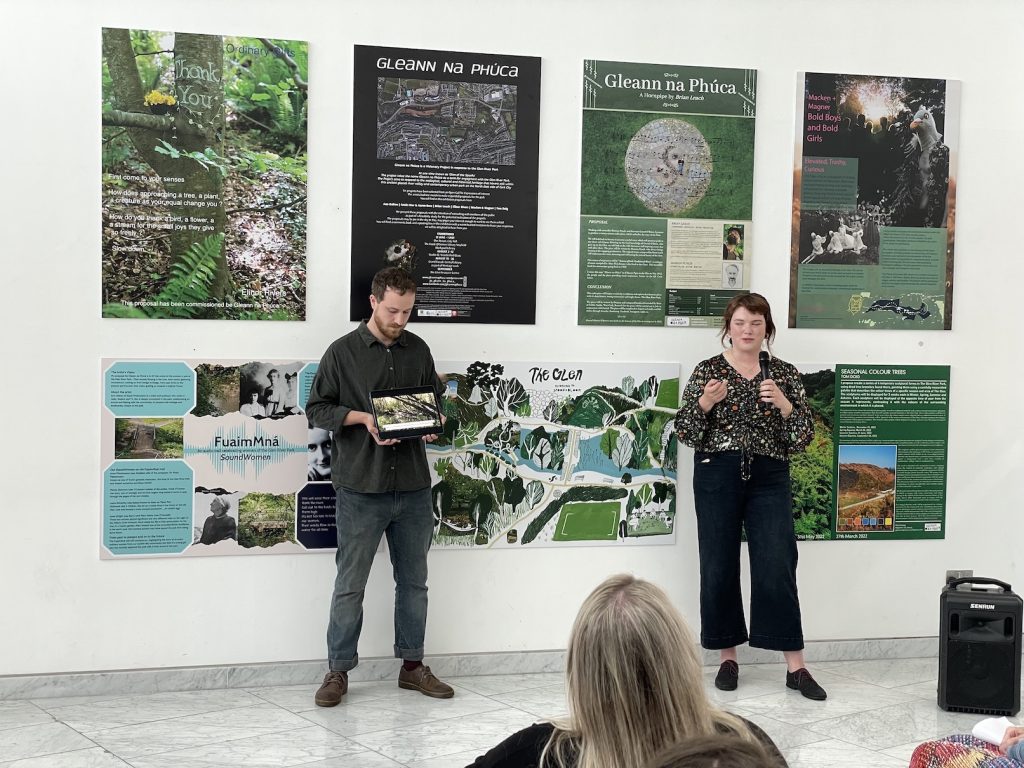
The next phase of the project is to realise these propositions.
In July 2023 Gleann a’ Phúca was successful in getting a Creative Climate Action Spark Award for the Gleann a’ Phúca specifically to support the realisation of Spoon and Bloom and Ordinary Gifts projects.
in 2023 Gleann a’ Phúca also recieved a local authority arts project award from Cork City Council to produce FuaimMná.
We aim to seek funding for the other three projects. But for now we are in production of the first 3 projects.
As part of the research into the industrial history of the Glen River Park Gleann a’ Phúca commissioned investigative journalist Ellie O’Byrne to research and produce a podcast about the legacy of the Gouldings Fertiliser plant.
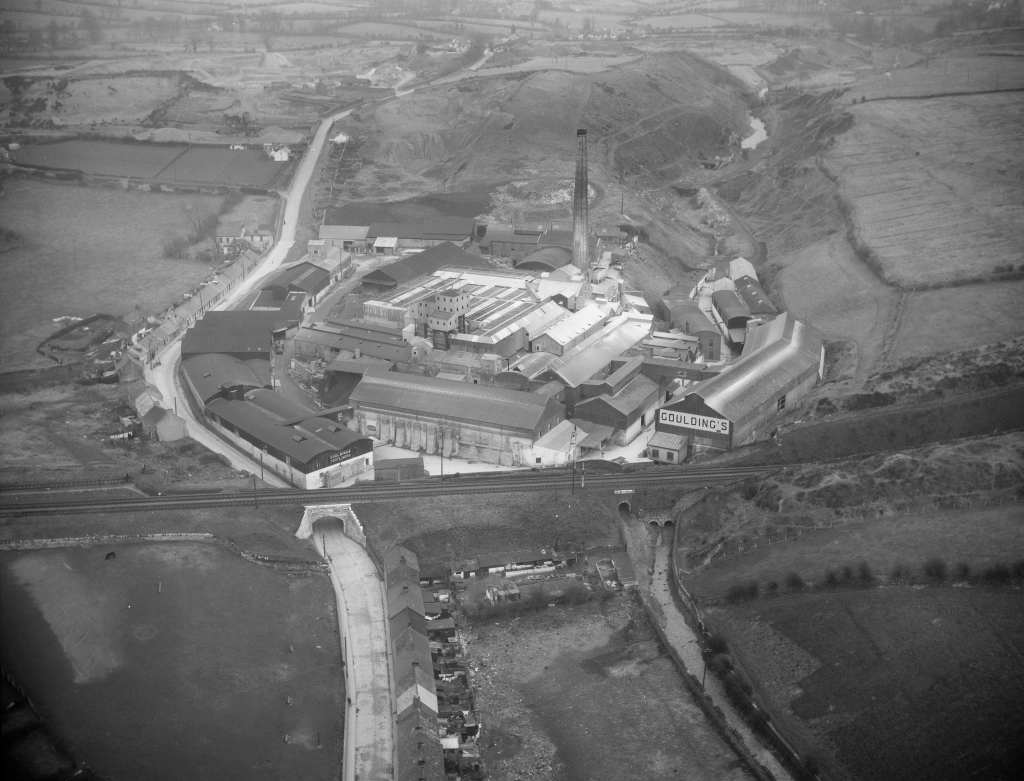
image credit Morgan, Alexander Campbell, 1919-1958 “This image is reproduced courtesy of the National Library of Ireland [NPA MOR2118]”
Sir Basil Goulding, speaking in 1968 as he handed over the Glen Valley to the people of Cork:
“I have the delight today of formally handing to you now, Mr Mayor, for the enjoyment of the people of Cork, the ups and downs of Goulding’s Glen”
The Glen River Park hasn’t always been the wildlife haven it is today: for over 100 years, it was home to W&HM Goulding Limited, which was, before Irish independence, the largest chemical fertiliser company in the UK.
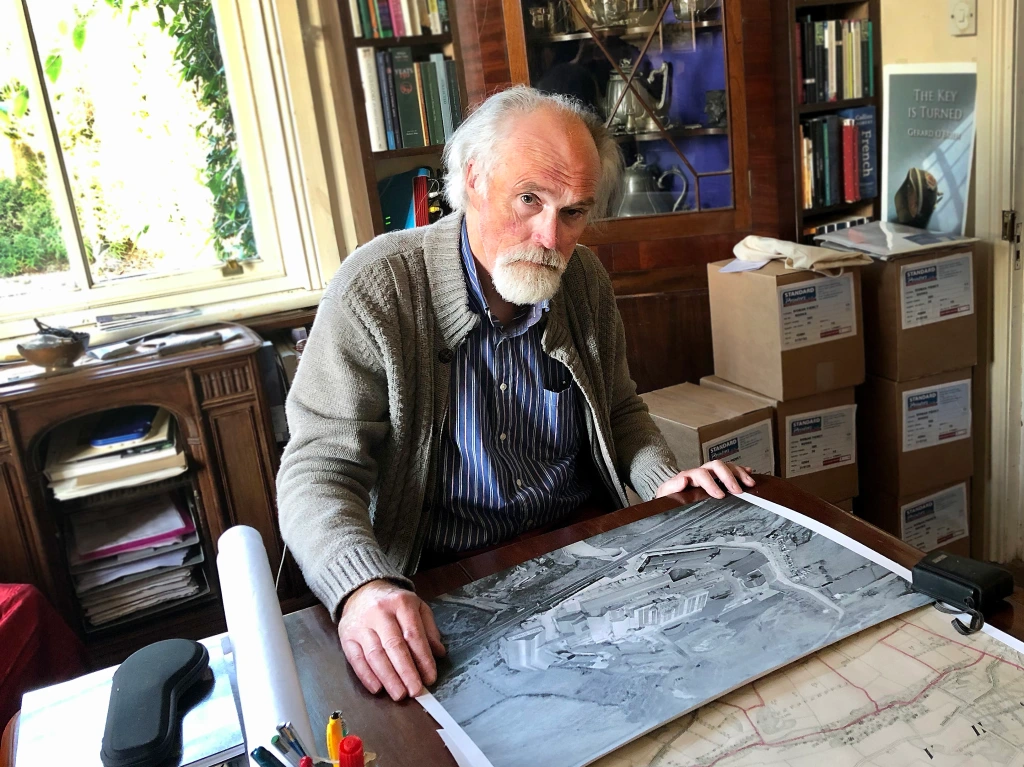
The Goulding family started as a “family druggists and perfumers” on St Patrick’s St, selling everything from candle wicks to glass, from mineral and soda waters to tooth powders.
In 1856, Gouldings purchased the former Glen Distillery, ideal for their manufacturing due to the supply of water and the proximity to the rail line. Their agricultural chemical empire grew and grew, and eventually employed some 300 men.
But the production of sulphuric acid, superphosphates and bone meal that happened in Goulding’s Glen was a source of industrial pollution for the area as well as employment.
Records show a history of complaints, including a law suit in 1857, just one year after Gouldings began manufacturing in the Glen, taken by residents that looks much like modern-day environmental activism, on the basis that the production of superphosphates was “injurious to the health of the inhabitants of the locality.”1
Descriptions of the workers tending to suffocatingly hot lead-lined vats of sulphuric acid include the detail that they wore handkerchiefs over their noses and mouths to protect against the “obnoxious gases” being omitted.
In 1865, locals again complained of a “burning irritating odour” and ongoing smells of burned blood, sulphur and castor oil.
The Ups and Downs of Goulding’s Glen will be a stand-alone podcast episode delving into the fascinating industrial past of Goulding’s Glen, including interviews with historians, genealogists and a member of the Goulding family.
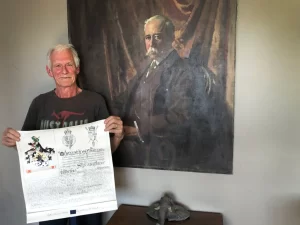
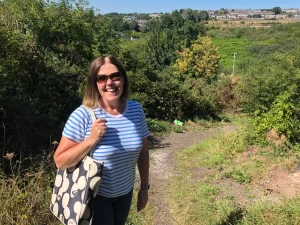
1 Walsh, S. (2016) W. & H.M. Goulding: From 108 Patrick Street to Fertiliser Empire. Diploma in Genealogy. University College Cork



